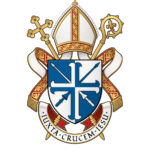
Frequently Asked Questions
A priest’s life is never boring! They celebrate Mass on Sundays and during the week, hear confessions, anoint the sick, baptize children and adults, witness marriages, and conduct funerals. They also teach the faith, listen and provide counsel to those in need, and promote works of charity. Priests visit the sick in hospitals and nursing homes, bring hope to those in prison, and mentor young people in schools. They also oversee parish staff, buildings, and budgets. Priests are called, by the grace of God, to be all things to all people! And they can only do this to the extent that they are in a loving relationship with the Lord. That is why prayer is the bedrock of a priest’s life.
The answer is yes and no! Because they want to serve God within the Church, diocesan priests make a formal promise of obedience to their bishop. It binds them to do God’s will as discerned by the bishop (who is responsible for the entire diocese); they renounce the freedom to do always and everywhere what they like or want to do.
On the other hand, the freedom of the priest is not a freedom from responsibility; rather it is a freedom for the good! By freely choosing to limit their exterior freedom, priests gain the peaceful, deeper interior freedom that comes from knowing that they are doing exactly what God made them to do!
Priests in the Latin Rite of the Catholic Church choose to freely renounce marriage for the sake of the Kingdom in response to the call of Jesus to his disciples: “there are eunuchs who have made themselves eunuchs for the sake of the kingdom of heaven. Let the one who is able to receive this receive it” (Matthew 19:12). He makes this choice in response to careful discernment of how God has made him to love others most fully in this life: as a married man or as a celibate man.
Jesus himself lived a celibate life in total dedication to Father and to doing His will. It is therefore most fitting for the man who stands in persona Christi capitis, that is, in the person of Christ, the head, to live a life most conformed to Christ’s own. Celibacy for the Kingdom sets the priest free to follow God with an undivided heart. As St. Paul explains, “the unmarried man is anxious about the things of the Lord, how to please the Lord. But the married man is anxious about worldly things, how to please his wife, and his interests are divided” (1 Corinthians 7:32-34).
Finally, priests serve as a living reminder; as a kind of “sacrament” of eternity in the midst of time. That is, the unmarried priest reminds the world of the words of Jesus: “at the resurrection people will neither marry nor be given in marriage; they will be like the angels in heaven” (Matthew 22:30). These words were not popular when first spoken by Jesus, and are still not popular today.
Celibacy does not do away with a priest’s male sexual identity. Nor is it a condemnation of the married covenant. Rather, it is a structure of committed, covenantal love for God and His Church, which is made possible by grace and perseverance. While it is not a dogma, it is a great gift for the Church which has produced countless Saints for almost 2 millennia!
Certainly; everyone, even married people, are lonely from time to time! Contrary to what we see in romance movies, loneliness is a common part of life. In fact, many Saints have taught that loneliness is a means through which God draws us closer to Himself. In the end, our relationship with God is the only “cure” for loneliness–only His infinite love can satiate our infinite desire for love.
Yes, diocesan priests receive a modest salary from the parish or other institution they serve. Since priests are ordinarily provided with room and board, their salary is sufficient for their personal expenses such as clothes and transportation. While diocesan priests do not take the vow of poverty that religious order priests take, they are encouraged to live a life of simplicity and to be generous to the poor. The black clerical clothes typical of priests are an outward sign of this modest life.
The Lord took his apostles apart for some rest after they had worked very hard preaching and healing (cf. Mark 6:31-32). Diocesan priests work hard too, and the Lord takes them apart from time to time to rest. Most priests take one day off each week and have time off each year for vacation. It is also wise for them to have hobbies and special interests to turn to for relaxation, just as they make time for daily prayer. Diocesan priests also make an annual retreat each year to help renew their relationship with and commitment to the Lord.

